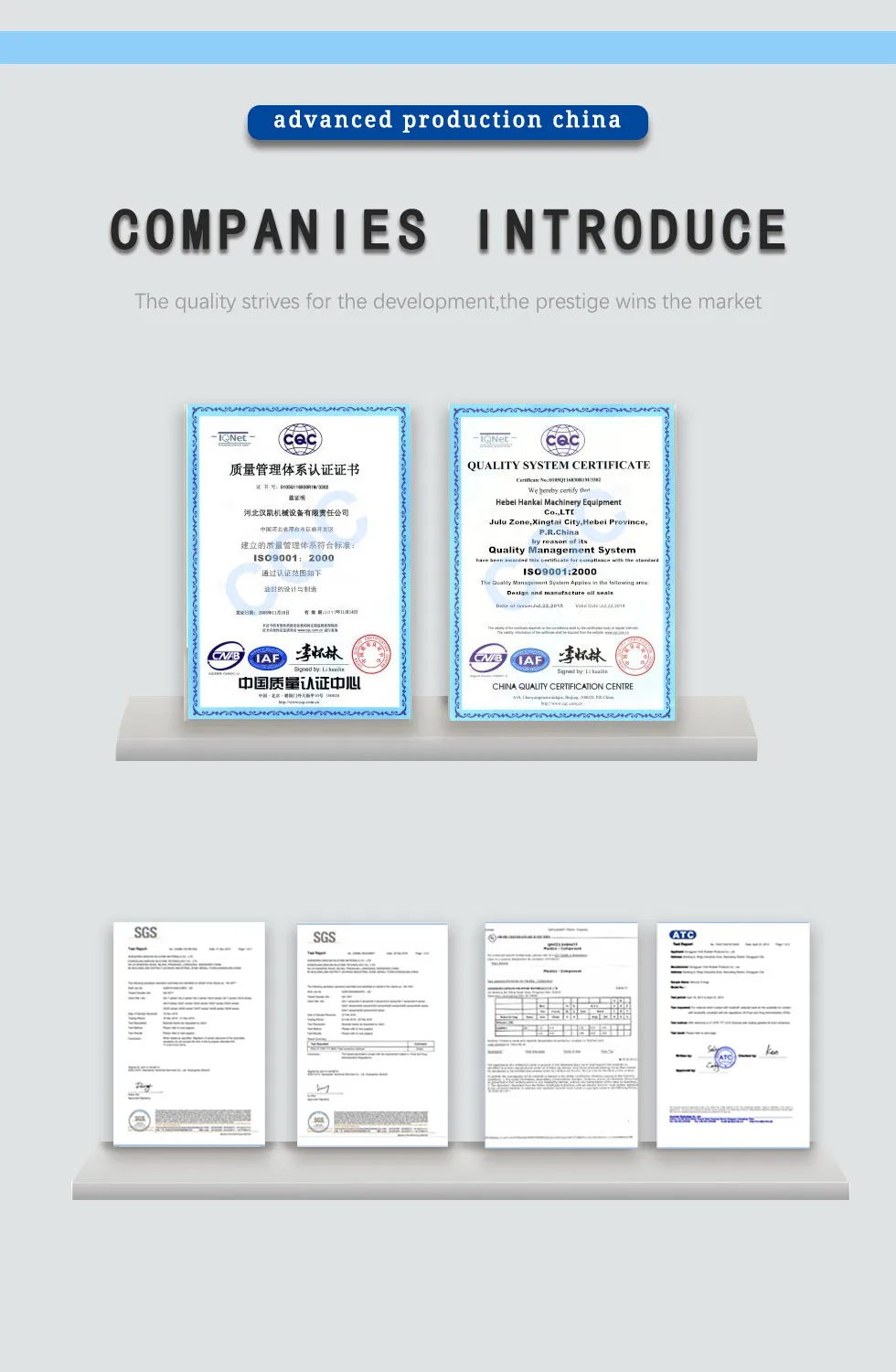Nov . 03, 2024 21:54 Back to list
wiper ring
Understanding Wiper Rings Essential Components in Mechanical Systems
Wiper rings, often overlooked in mechanical systems, play a crucial role in ensuring efficiency and functionality. These specialized rings are primarily used in hydraulic systems, pistons, and various types of machinery where fluid containment and control are critical. Their primary function is to prevent the escape of fluid, keep contaminants out, and provide a smooth operation of moving parts.
Wiper rings are typically made from durable materials such as polyurethane, rubber, or PTFE (Teflon), depending on the specific application and environmental conditions they must endure. The choice of material greatly affects the performance, lifespan, and resistance to wear and tear. For instance, polyurethane wiper rings offer excellent wear resistance and are ideal for high-pressure environments, while rubber rings are often used in less demanding applications.
In essence, wiper rings serve to clear debris and prevent it from entering the cylinder or chamber where the piston operates. A well-functioning wiper ring minimizes friction, enhancing the overall performance of the machinery. This is crucial in hydraulic systems, where fluid management is vital for the effective operation of hydraulic cylinders and other components. If a wiper ring fails, it can lead to severe leaks, contamination of hydraulic fluid, and ultimately, mechanical failure.
wiper ring

Another critical aspect of wiper rings is their design. They come in various shapes and sizes to fit specific applications. The design must ensure that the ring can flex and fit snugly against the surfaces it interacts with. This snug fit is necessary to create an effective seal, preventing fluid leakage while allowing for the necessary movement of components. Engineers must consider several factors, including pressure, temperature, and the type of fluids being contained, when selecting or designing wiper rings.
Regular maintenance and inspection of wiper rings are essential to ensure optimal performance. Over time, wiper rings can wear out, become brittle, or lose their elasticity, leading to potential failures. Indicators of worn-out wiper rings include visible leaks, reduced efficiency in machinery, and increased frictional noise. By routinely checking these components, operators can prevent unexpected breakdowns and costly repairs.
In summary, wiper rings are vital components in various mechanical systems, ensuring the integrity and efficiency of fluid management. Their role in preventing leaks and contamination cannot be underestimated. With proper selection and maintenance, wiper rings contribute significantly to the longevity and reliability of hydraulic and pneumatic systems. Understanding their function, materials, and maintenance can help industries optimize their machinery and reduce downtime, ultimately leading to improved productivity and cost savings. The significance of wiper rings should not be overlooked, as they serve as silent guardians of mechanical performance.
-
TCN Oil Seal Metal Ring Reinforcement for Heavy Machinery
NewsJul.25,2025
-
Rotary Lip Seal Spring-Loaded Design for High-Speed Applications
NewsJul.25,2025
-
Hydraulic Cylinder Seals Polyurethane Material for High-Impact Jobs
NewsJul.25,2025
-
High Pressure Oil Seal Polyurethane Coating Wear Resistance
NewsJul.25,2025
-
Dust Proof Seal Double Lip Design for Construction Equipment
NewsJul.25,2025
-
Hub Seal Polyurethane Wear Resistance in Agricultural Vehicles
NewsJul.25,2025
-
The Trans-formative Journey of Wheel Hub Oil Seals
NewsJun.06,2025
Products categories
















